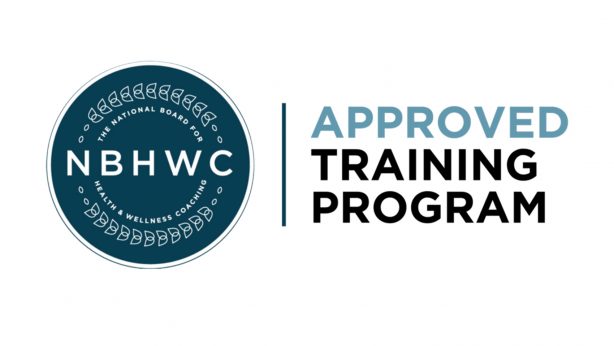
What does a health coach do?
A health coach is a skilled professional who works with clients to identify, track, and achieve long-term, self-directed wellness goals that are consistent with the client’s personal values. Health coaches collaborate with clients to create individualised plans that help reduce underlying causes of disease and improve the overall quality of life in the long run.
Why is health coaching important for students?
Health coaching enables clients to reclaim control over their habitual thinking, solidify healthy behaviours, and thrive in the classroom and in their daily lives. Campus Recreation, at its core, serves to support students’ learning and to foster lifelong habits of well-being. Wellness programmes are most effective when they focus on the long-term health of students rather than when they are implemented in response to a campus crisis. If frontline educators can teach young adults self-awareness and how to create a paradigm shift in their abilities to experience life and create the life of their calling, they will be able to do so. We would then teach college students how to find inner peace and understanding when confronted with the stresses of modern life.
Health coaching has proven to be an effective option for improving student wellbeing while also offering a potentially rewarding career path in campus recreation and wellness. A university’s recreation centre serves as a central gathering place for students, faculty, and staff to access all aspects of health and wellness. Health coaching allows this population to develop strategies for living a healthy lifestyle.
What does health coaching look like for college students?

Health coaching is gaining popularity on college and university campuses as a way to help students deal with college stressors. According to the American College Health Association (ACHA), anxiety, depression, and stress are barriers to health and academic success. These are all issues that have gotten worse for college students during the COVID-19 pandemic, and addressing the mental health crisis on college campuses is an ongoing challenge for college employees and administrators.
ACHA recommends the following approaches to developing a health coaching program:
1. Assess student health & well-being needs
Consider student interest in the planning process. Conducting a campus-wide needs assessment or analysing existing data on student health and well-being will help identify areas of opportunity for health coaching. A baseline needs assessment will also assist in tracking trends and changes in behaviour before and after implementing health coaching.
2. Create a plan
Consider these questions as you develop a strategy for a health coaching programme. Who will provide health coaching? How will students learn about and participate in health coaching? When and where will health coaching be offered? What topics will be covered in health coaching? The planning process should determine whether health coaches will be existing employees or students, as well as what training, space, technology, and other resources are required. Consider collaborating with an interdisciplinary team drawn from existing campus departments, local resources, and other schools that already have health coaching programmes in place.
3. Measure success
Create metrics and an evaluation strategy based on health outcomes. A strategy for gathering success and outcome metrics will enable ongoing evaluation efforts to determine the program’s effectiveness while also identifying opportunities for growth. Furthermore, assessment results can be used to advocate for health coaching resources.
4. Determine the short- and long-term goals of the health coaching programme
Setting initial goals for the health coaching programme helps to ensure its long-term viability and growth. Setting goals and tracking progress towards those goals keeps you informed of opportunities to scale the programme. You’ll also notice indicators that the programme needs to be tweaked to better meet the needs of students’ wellness.
Student Help Seeking Behaviour Change
Counselling and psychological services are among the many resources available to graduate students on campus. According to research, however, college students are not always motivated or willing to seek counselling (Topkaya, 2014). Furthermore, students who are more anxious have a higher stigma and are less likely to seek help from a counsellor when they need it (Cheng et al., 2015; Kim & Zane, 2015). Students frequently lack mental health literacy, or the knowledge of mental health issues required to recognise symptoms, manage symptoms through self-care or counselling, and prevent future problems (Kutcher, 2016). This includes the ability to differentiate clinical mental health issues from normal stress or anxiety, as well as the impact of risk factors and available resources on attitudes towards seeking professional help (Jorm et al., 1997). Low mental health literacy is related to anxiety and stress, but not to help-seeking attitudes and behaviours in students (Coles & Coleman, 2010; Kim et al., 2015; Stansbury et al., 2011). While it would be ideal for graduate students to use counselling services on a regular basis, there is frequently a waitlist, reluctance, or stigma associated with doing so (LeViness et al., 2017). It is critical to promote graduate student coping, psychological well-being, and support as a means of reducing burnout and dropout, as well as promoting overall student wellness (Gardner, 2010).
Virtual health care provides health coaching.

Weljii’s health coaches offer student-centered health coaching on topics such as stress management, time management, healthy eating habits, healthy relationships, substance use/misuse, movement/physical activity, and sleep improvement. Weljii’s virtual health and well-being platform provides medical and mental health support, as well as health coaching, psychiatry, and care coordination support, as a supplement to existing campus health services (such as medical and counselling centres). To learn more about health coaching services for your campus, contact Weljii support.
A study discovered that health coaching improved students’ perceived stress and self-reported wellness status. Surprisingly, findings on the efficacy of health coaching with college students revealed benefits that go beyond traditional health and well-being outcomes.
There is a strong link between students’ feelings of belonging and their retention. When a student feels like they belong, it increases not only their affinity for the institution but also their likelihood of remaining enrolled. Health coaching, when integrated into other student support services, is an effective strategy for engaging and supporting student health, well-being, and success. Health coaching is an effective strategy for student support as institutions strive to maintain enrolment, support students’ transition to college life, keep students on track to graduate, and provide students with the skills needed to begin their careers.
Promoting Campus-Wide Health and Wellness Coaching
Individuals and groups can benefit from health and wellness coaches’ cognitive and behavioural strategies to improve personal wellness management (Wolever et al., 2013). Campuses can even promote technology-based health and wellness coaching as a way to keep care going during holidays, and breaks, or for graduate students who work full-time and require coaching after regular business hours. Health and wellness coaching aims to promote behaviour change through a client-centered approach that frequently employs motivational interviewing, journaling, self-care strategies, and the transtheoretical model to energise the client to solve their own problems (Swarbrick et al., 2011). Health and wellness coaching can supplement services provided by counselling and psychological services, the campus recreation centre, and the student health centre. (Saginak, 2020).
Graduate students’ overall well-being is critical to their success. All six dimensions of wellness, occupational, emotional, spiritual, physical, intellectual, and social, require avenues for support as faculty, staff, and undergraduate and graduate students prepare to return to campus.


